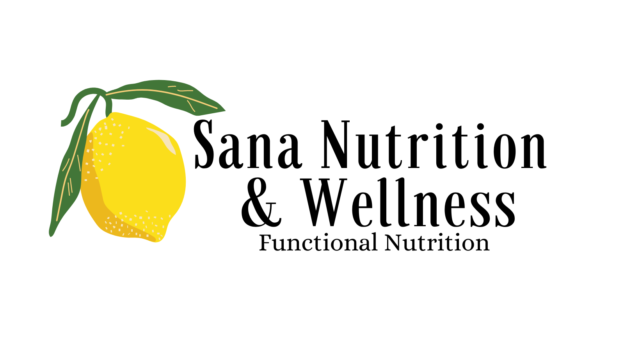You know that BLT you are eating right now for lunch? Stop! Spit it out, it’ll kill you!
Ha! I’m kidding of course! That’s not really true, but according to a the World Health Organization’s (WHO) cancer agency the International Agency for Research on Cancer (IARC), a meta-analysis of 800 studies concludes that eating red meat and processed meats does cause cancer.
Sounds scary, huh? Well, cancer is scary and that thought that something we are eating could cause cancer is very scary. The IARC published a report, which states that eating ~2oz (50g) of processed meat daily increases your risk of colorectal cancer by 18% percent. This sounds really alarming and I guess it is, because 18% is not an insignificant number, but the thing is this cancer risk is multifactorial and this processed/red meat link is not new news.
In fact, 1/3 of all Cancers in the US can be linked to diet and exercise-related factors risk factors, so there are a lot in our diet, lifestyle and environment that increase our cancer risk.
- Adult Beverages: I’m talkin’ booze here! Alcohol intake may slow down the a cell’s ability to repair DNA properly, and over time this can lead to DNA replication miss-steps. So even alcohol moderate intake (2 drinks for men and 1 drink for woman/day) can increase your cancer risk for many types of cancers, but of course increasing frequency and amount increases your exposure to risk.
- Sun exposure: Frequent exposure to UV radiation increases risk of skin cancer.
- Carrying excess weight: A BMI >25 puts us at a significantly higher cancer risk.
- Too Much Sugar: High sugar consumption has been linked to chronic inflammation and a high incidence of breast cancer.
- Environmental Pollutants – Pesticides and Certain Food Dyes and preservatives, and other chemical are all linked to increased cancer incidents
- Smoking – I’m pretty sure I don’t have to explain this. If you are still struggling with why this is bad, let’s set up a Life Coaching appointment and we can talk about the roles denial and self-sabotage are playing in your life.
So as you can see there are many risk factors associated with our current lifestyle that increase our cancer risk. This is valuable information and allows us to make modifications to our diet, but focusing on the things to avoid is only part of the cancer risk story. Really, our bodies are in resilient and we are provided with many fail-safes that help use combat the cancer causing agents in our diets and environment. So instead of focusing on the things we need to cut out of our lives, we need to think about what we can add to our lives that will decrease our cancer risk.
- Be active – be active and exercising regularly (~30mins/day, EVERYDAY) can cut our cancer risk by up to 40% (depending on the cancer and circumstance of course). Regular exercise and activity helps decrease chronic inflammation, improves DNA repair and stress management.
- Get enough Sleep and reduce your Stress – We are constantly building and repairing cells and strands of DNA. And when our body is under high amounts of stress (work, home, emotional, busyness, lack of sleep) our immune system kinda goes hay-wire and increases inflammation and releases stress hormones and this creates a pretty toxic environment to be growing and building your delicate DNA strands. And when something goes array when building the DNA, and this “mess up” is how cancer starts. Ways to decrease stress and improve sleep are meditation, gratitude journaling at night and exercise…just to name a few.
- Eat more fruits and vegetables – Most people could increase their fruit and vegetable (F&Vs) intake by at least 50%. Fruits and vegetables contain fiber, which helps regular blood sugar, cleans up the colon and maintain the health of your gut. Eating lots of F&Vs also gives you vitamins, minerals, antioxidants and phytochemicals that our body needs to maintain homeostasis (balance), good cell replication and proper detoxification. Recommendations are at least 2 ½ cups of vegetables everyday…So try to have a fruit and/or vegetable with every meal and snacks.
- Eat Less Meat: this is a controversial one in my house, but there are numerous studies that a vegetarian diet or low meat diet is associated with decrease incidents of cancer. The reason for this is multifactorial but some of the hypotheses are that meat doesn’t have the cancer protective elements such as vitamins, minerals, fiber and antioxidants, it’s typically high in saturated fat, which increases hormone production affecting hormone sensitive organs and can contain potentially carcinogenic compounds.
As you can see, eating or not eating processed and red meat is only a piece in the complex puzzle that is our cancer risk. Being knowledgeable about what increases your cancer risk is helpful, but focusing on these single item recommendations isn’t. It creates stress and fear and that can be counter-productive when creating lifestyle change. A far more powerful and productive action is to create a plan of action to significantly improve your health, decrease you cancer risk and overall quality of life.
So let’s break it down, what is a good plan for you?
My idea of a good healthy action plan is simple:
- Be active and exercise everyday
- Eat a diet that is primarily plant-based (lots o’ F&Vs),
- Don’t overeat (be a mindful eater),
- limit processed and red meats to no more than 1 x per week
- Limit your adult beverages.
- Eat as clean as possible, limit processed foods (food dyes and preservatives)
- Get 7-8 hours of sleep a night, and if you need a nap…take one!
- De-stress daily. Meditate, do something that brings you joy every day and practice gratitude.
Now, I would love to hear from you! How do you stay healthy and reduce your cancer risk today?





